Discover People and Projects Podcast: Project Management Podcast
People and Projects Podcast: Project Management Podcast

People and Projects Podcast: Project Management Podcast
Author: Andy Kaufman, PMP, PMI-ACP
Subscribed: 3,328Played: 47,530Subscribe
Share
© (c) 2001-2025 Institute for Leadership Excellence & Development Inc.
Description
Welcome to the People and Projects Podcast, where we provide interviews and insights to help you lead people and deliver projects. Since 2009, this show is brought to you by speaker, author, and executive coach Andy Kaufman. If you're looking for insights on project management, leadership, and how AI influences both of those, you've come to the right place! And if you hold a project management certification, you can even earn free PDUs for listening!
495 Episodes
Reverse
Summary In this episode, Andy talks with Jess Baker, business psychologist and author of The Super-Helper Syndrome: A Survival Guide for Compassionate People. Jess helps leaders, project managers, and anyone who tends to take on too much work avoid burnout, preserve self-worth, and build healthier ways of helping. The conversation digs into what “Super-Helper Syndrome” means, how over-helping can lead to exhaustion, resentment, exploitation, or harsh self-criticism, and what beliefs often drive us into that pattern. Jess shares actionable tools for setting boundaries, recognizing irrational helper beliefs, and changing our mindset, including asking “What kind of help is needed here?” to building systems that support sustainable helping. If you’re leading projects, teams, or supporting others, these insights will help you avoid overcommitment while still being compassionate. Sound Bites “Helping others to the detriment of your own wellbeing is something many of us do without noticing.” “When you struggle to say no to requests for help, your relationships are lopsided. You deny your own needs.” “Exhaustion, resentment, exploitation and self-criticism are the four adverse impacts of super-helper syndrome.” “Compassion is when you decide you have to do something to alleviate someone's suffering.” “'What kind of help is needed here?' rather than just 'How can I help?'” “Your self-worth does not depend upon helping people.” “Healthy helping is about recognizing who, how and when you help, and having boundaries that are not porous.” Chapters 00:00 Introduction 02:01 Start of Interview 02:23 What Got You Started Exploring Empathy and Compassion? 05:15 Cognitive Empathy vs Emotional Empathy 08:02 How Do You, As a Clinician, Use Empathy Without Being Overwhelmed? 10:07 The Four Forms of Help 18:52 Stakeholder Scenario: Balancing Autonomy and Dependency in Helping 25:01 When Did Jess Help? What Were Her Motivations? 31:56 It Adds Energy to Help 33:28 How Can I Discern If I'm Becoming a Super-Helper? 38:07 A Roadmap for Setting Healthy Boundaries 46:03 Parenting and Helping Habits 51:21 End of Interview 51:58 Andy Comments After the Interview 56:33 Outtakes Learn More You can learn more about Jess, her book, and her work at JessBaker.co.uk. For deeper reading and related conversations, check out: Episode 448 with Marie-Helene Pelletier (on burnout and resilience) Episode 385 with Vanessa Patrick (about her book The Power of Saying No) Episode 26 with Dr. Ed Schein (MIT Fellow, Helping: How to Offer, Give, and Receive Help) Pass the PMP Exam This Year If you or someone you know is thinking about getting PMP certified, we’ve put together a helpful guide called The 5 Best Resources to Help You Pass the PMP Exam on Your First Try. We’ve helped thousands of people earn their certification, and we’d love to help you too. It's totally free, and it's a great way to get a head start. Just go to 5BestResources.PeopleAndProjectsPodcast.com to grab your copy. I’d love to help you get your PMP this year! Join Us for LEAD52 I know you want to be a more confident leader–that’s why you listen to this podcast. LEAD52 is a global community of people like you who are committed to transforming their ability to lead and deliver. It’s 52 weeks of leadership learning, delivered right to your inbox, taking less than 5 minutes a week. And it’s all for free. Learn more and sign up at GetLEAD52.com. Thanks! Thank you for joining me for this episode of The People and Projects Podcast! Talent Triangle: Power Skills Topics: Leadership, Project Management, Empathy, Boundaries, Wellbeing, Helping Others, Self-Compassion, Impact of Beliefs, Burnout Prevention, Communication The following music was used for this episode: Music: The Fantastical Ferret by Tim Kulig License (CC BY 4.0): https://filmmusic.io/standard-license Music: Tropical Vibe by WinnieTheMoog License (CC BY 4.0): https://filmmusic.io/standard-license
Summary In this episode, Andy interviews Jim Ferrell, author of You and We: A Relational Rethinking of Work, Life and Leadership. Andy has long been a big fan of Jim's work with The Arbinger Institute, authoring Leadership and Self-Deception and The Anatomy of Peace. In this conversation, Jim unpacks his insights on how leaders can move from a self-focused to a relational mindset. Drawing from his new book, Jim explains why our effectiveness as leaders depends not just on what we do, but on how we view and relate to the people around us. The discussion explores what it means to be relational instead of transactional, how leaders can better navigate conflict, and the subtle ways our self-deceptions hinder growth. Jim also shares practical ideas for building trust, leading with humility, and focusing on outcomes that matter most. This episode is packed with thought-provoking insights that will challenge how you think about leadership, culture, and collaboration. If you’re looking for insights on how to become a more relational leader and truly impact those you serve, this episode is for you! Sound Bites “Machines don't have to be great at relation, but they'll be great at everything else. And if we're lousy at relation ourselves, we won't have a job.” "Those who can relate better, that's the uniquely human competitive advantage we bring to the marketplace." "The top people spend most of their time on the relational work, not on the other stuff. So you see it happening already. That's all going to be accelerating." “The most important part of the chart of any org chart is actually all the space in between the names and boxes, because that's where everything's happening, right?” “We went from the body economy to the mind economy to now the heart economy.” “Proximity is not necessarily closeness.” Chapters 00:00 Introduction 01:55 Start of Interview 02:07 Jim Ferrell's Backstory and Early Influences 06:17 About Jim Writing Leadership and Self-Deception 08:57 Exploring the Concept of Relation vs. Relationships 10:07 The Five Levels of Relation 13:19 Managing Relation in Organizations 17:29 The Shift to the Heart Economy 20:00 Insights from the Book 'You and We' 27:00 Proximity vs. Closeness in Remote Work 29:08 The Power of Hydrogen and Oxygen 29:46 Remote vs. In-Person Work Dynamics 32:14 The Importance of Connectivity in Teams 33:14 Understanding Relational Space 34:35 Personal Stories of Relation 37:48 How Can We Discern Where We Are in the Levels? And Our Teams? 39:29 The Concept of Compounding in Relations 41:07 The Relational Leap 45:54 End of Interview 46:27 Andy Comments After the Interview 49:23 Outtakes Learn More You can learn more about Jim and his book at Withiii.com/youandwe. For more learning on this topic, check out: Episode 185 with Mitch Warner about the Arbinger book Leadership and Self-Deception. Episode 356 with Eric Barker about why everything you know about relationships is mostly wrong. Episode 459 with Adrian Kelly about identity and rethinking success. Pass the PMP Exam This Year If you or someone you know is thinking about getting PMP certified, we’ve put together a helpful guide called The 5 Best Resources to Help You Pass the PMP Exam on Your First Try. We’ve helped thousands of people earn their certification, and we’d love to help you too. It's totally free, and it's a great way to get a head start. Just go to 5BestResources.PeopleAndProjectsPodcast.com to grab your copy. I’d love to help you get your PMP this year! Join Us for LEAD52 I know you want to be a more confident leader–that’s why you listen to this podcast. LEAD52 is a global community of people like you who are committed to transforming their ability to lead and deliver. It’s 52 weeks of leadership learning, delivered right to your inbox, taking less than 5 minutes a week. And it’s all for free. Learn more and sign up at GetLEAD52.com. Thanks! Thank you for joining me for this episode of The People and Projects Podcast! Talent Triangle: Power Skills Topics: Leadership, Project Management, Relationships, Trust, Relational Mindset, Conflict, Self-Deception, Self-Awareness, Influence, Humility, Collaboration, Culture, Authenticity The following music was used for this episode: Music: Echo by Alexander Nakarada License (CC BY 4.0): https://filmmusic.io/standard-license Music: Fashion Corporate by Frank Schroeter License (CC BY 4.0): https://filmmusic.io/standard-license
Summary Have you ever wrapped up your workday thinking, “I’ve been busy all day, but I’m not sure I actually made anything better”? If so, you’re not alone, and today’s guests are here to help you break that cycle. In this episode, Andy talks with Don Kieffer and Nelson Repenning, co-authors of the new book There’s Got to Be a Better Way. Don is a former Harley-Davidson executive who led during some of the company’s most challenging years. Nelson is a professor at MIT Sloan who studies why well-intended management tools often fail in practice. Together, they’re helping leaders rethink how work actually gets done. In the conversation, you’ll learn why so many teams get stuck in firefighting mode, and why that’s often not a people issue but a systems issue. You’ll hear how to spot the “firefighter-arsonist” pattern, why problem-solving starts with problem-finding, and what it means to “design for discovery.” We also talk about Agile, Lean, invisible handoffs, and even how these ideas apply to family life. If you’re looking for insights on how to make your team’s work more effective, sustainable, and human-centered, this episode is for you! Sound Bites “Most performance problems are not people problems. They're design problems.” “You get what you design for. And most work isn’t designed at all. It just kind of happens.” “Firefighting is not a character flaw. It’s a predictable output of a broken system.” “If you don’t make the work visible, you can’t improve it.” “When no one owns the handoff, it’s not really a handoff. It’s a drop.” “Success should be easy. That doesn’t mean the work isn’t hard, but the path to doing it well should be clear.” “Discovery isn’t luck. It’s a design choice.” Chapters 00:00 Introduction 01:49 Start of Interview 01:59 The Origin Story: How Don and Nelson Collaborated 07:36 Challenges in Implementing Business Tools 13:19 Dynamic Work Design vs. Traditional Methods 25:16 A Lesson from the Factory Floor 26:53 Identifying and Solving Problems in Teams 31:23 The Importance of Connecting the Human Chain 35:46 Making Work Visible: Strategies and Tools 40:34 Applying Work Strategies at Home 42:46 End of Interview 43:12 Andy Comments After the Interview 47:35 Outtakes Learn More You can learn more about the book and their work at shiftgear.work/theres-got-to-be-a-better-way-book. For more learning on this topic, check out: Episode 249 with Aaron Dignan about Brave New Work Episode 252 with Marcus Buckingham about Nine Lies About Work Episode 162 with Jonathan Raymond on culture and leadership mindset Thank you for joining me for this episode of The People and Projects Podcast! Talent Triangle: Business Acumen Topics: Leadership, Project Management, System Design, Agile, Lean, Problem Solving, Collaboration, Organizational Effectiveness, Continuous Improvement, Work Design, Team Performance The following music was used for this episode: Music: Quantum Sparks Full Version by MusicLFiles License (CC BY 4.0): https://filmmusic.io/standard-license Music: Synthiemania by Frank Schroeter License (CC BY 4.0): https://filmmusic.io/standard-license
Summary In this candid live-stream conversation, Andy chats with content creator and project leader Stuart Taylor, the mind behind the Influential PMO platform and the Stuart Taylor Project YouTube channel. They dig into the difference between influencers and thought leaders, how to choose topics that genuinely help practitioners, and what to do when metrics don’t match the effort. Stuart shares practical strategies for building professional visibility on LinkedIn and YouTube, including how to craft resonant messages, handle trolls, and focus on service over self-promotion. The discussion also explores Stuart’s experiment asking whether AI could manage a project. Spoiler: AI is a strong team member for first drafts and research, but a weak project manager. They wrap with career advice for today’s shifting job market, including why to think like an internal consultant and how to future-proof your career by learning in public. If you’re looking for insights on personal branding, creator tactics, and AI’s real role in project work, this episode is for you! Sound Bites Regarding AI: "It cannot be the project manager. It's spineless. It is a weakling leader." "There is no such thing as a permanent job anymore." “Share what you know and people will be drawn to you for what you are sharing.” “Learn to make a resonating message. Learn how to share value.” “I never did this to become internet famous… What problem do I want to solve? That’s it.” “Because you don't understand how the algorithm works. You think your whole network's ignoring you, and in fact, all that's happened is maybe less than 10% of your network has seen the message before the algorithm realized that your message wasn't resonating.” “It will be the penny pinching execs who want to save a few dollars, who will take your job, and they'll replace it with a machine that can do 50% of your job for a fraction of your price, and they'll live with the 50% they can't do.” Chapters 00:00 Start of Live Stream 02:13 Thoughts on Influencers and Thought Leaders 05:28 Deciding on Video Content 07:34 Views and Metrics 14:41 The Creative Process and Challenges 18:28 Sharing Knowledge and Building a Community 18:49 Navigating Social Media: The Good, The Bad, and The Trolls 19:18 Handling Criticism and Building Connections 24:37 The Role of AI in Project Management 29:10 The Future of Work: AI, Automation, and Adaptation 36:24 Staying Curious and Embracing Change Learn More You can learn more about Stuart and his work here: LinkedIn: linkedin.com/in/skt Website: InfluentialPMO.com YouTube: Stuart Taylor Project Thank you for joining me for this episode of The People and Projects Podcast! Talent Triangle: Business Acumen Topics: Leadership, Project Management, Content Strategy, Personal Branding, Career Development, LinkedIn, Artificial Intelligence, Communication, Influence, Stakeholder Engagement, Future Of Work, Creator Economy The following music was used for this episode: Music: Echo by Alexander Nakarada License (CC BY 4.0): https://filmmusic.io/standard-license Music: Chillhouse by Frank Schroeter License (CC BY 4.0): https://filmmusic.io/standard-license
Summary In this episode, Andy welcomes Jeffrey Hull and Margaret Moore, co-authors of The Science of Leadership: Nine Ways to Expand Your Impact. Drawing from over 50 years of leadership research and tens of thousands of studies, Jeff and Meg offer an accessible roadmap for leaders who want to grow in meaningful, evidence-based ways. As coaches and leaders at the Institute of Coaching, they distill complex research into nine practical leadership capacities that help you expand your impact while staying grounded. In this conversation, they unpack what it means to be a conscious leader and why self-awareness is essential. You’ll hear how cultural context affects leadership perceptions, what it takes to be ready to grow, and how to quiet the "ego noise" that can derail your effectiveness. Whether you're managing a team across time zones or parenting in today’s high-pressure environment, the insights from this episode are deeply practical and immediately usable. If you're looking for insights on how to lead with more clarity, authenticity, and impact, this episode is for you! Sound Bites "Leadership isn’t about you as much as it is about your impact on others." "Motivation and confidence are twin engines that power real growth." "Quieting your ego doesn’t make you less effective. It gives you clarity." "Cultural norms can shape how leadership is perceived, but respect always translates." "Transformational leadership isn’t about having a vision. It’s about co-creating one." "Parenting is leadership. And it’s one of the best places to practice these capacities." "The book is a self-coaching tool for everyday leaders who want to grow with intention." Chapters 00:00 Introduction 01:49 Start of Interview 02:00 What From Your Early Life Influenced How You Think About Leadership? 08:00 What Types of Leadership Books Make You Shake Your Head? 11:08 What Do You Mean by Leadership? 17:30 How Do We Know If We're Ready to Grow as Leaders? 21:00 How Do Cultural Norms Affect the Practice of These Capacities? 25:45 What Does It Mean to Be a Conscious Leader? 35:00 What Is a Quiet Ego, and How Do You Quiet Ego Noise? 38:30 What Does Transformational Leadership Look Like in Practice? 40:30 A Practical Way to Develop This Capacity 45:28 What Can Parents Learn From This Book to Lead Better at Home? 48:46 End of Interview 49:20 Andy Comments After the Interview 53:00 Outtakes Learn More You can learn more about Jeff, Meg, and their work at ScienceOfLeadership.com. For more learning on this topic, check out: Episode 344 with Peter Bregman about how you can change other people by setting the conditions under which they’re willing to change. Episode 416 with Jim Kouzes. He’s been with us four times, each episode exploring research-driven insights on leadership. Episode 252 with Marcus Buckingham about the Nine Lies we believe about work and leadership, and what to do about them. Pass the PMP Exam This Year If you or someone you know is thinking about getting PMP certified, we’ve put together a helpful guide called The 5 Best Resources to Help You Pass the PMP Exam on Your First Try. We’ve helped thousands of people earn their certification, and we’d love to help you too. It's totally free, and it's a great way to get a head start. Just go to 5BestResources.PeopleAndProjectsPodcast.com to grab your copy. I’d love to help you get your PMP this year! Join Us for LEAD52 I know you want to be a more confident leader–that’s why you listen to this podcast. LEAD52 is a global community of people like you who are committed to transforming their ability to lead and deliver. It’s 52 weeks of leadership learning, delivered right to your inbox, taking less than 5 minutes a week. And it’s all for free. Learn more and sign up at GetLEAD52.com. Thanks! Thank you for joining me for this episode of The People and Projects Podcast! Talent Triangle: Power Skills Topics: Leadership, Self-Awareness, Coaching, Organizational Behavior, Servant Leadership, Team Culture, Feedback, Psychological Safety, Confidence, Change Readiness, Authenticity, Conscious Leadership, Project Management The following music was used for this episode: Music: Echo by Alexander Nakarada License (CC BY 4.0): https://filmmusic.io/standard-license Music: Fashion Corporate by Frank Schroeter License (CC BY 4.0): https://filmmusic.io/standard-license
Summary In this episode, Andy welcomes Mark Reich, a former Toyota leader and current Chief Engineer for Strategy at the Lean Enterprise Institute. Mark is the author of Managing on Purpose. If you’ve ever tried to improve your team but felt like your strategy was stuck in a slide deck, this conversation is for you. Mark introduces the idea of hoshin kanri, a lesser-known but critical pillar of Toyota’s management system, and explains how lean thinking is more than just tools--it's a way of developing people and aligning purpose across an organization. You’ll hear why metrics alone won’t get you to strategic clarity, how to escape the trap of firefighting, and why engagement, not just direction, is the key to long-term improvement. He also shares how lean thinking can be applied at home, even with your kids! If you’re looking for insights on how to align teams, build capability, and lead with greater purpose, this episode is for you! Sound Bites "Don't focus on the tool. The tools have to serve a purpose." “Catchball is not just a handoff of plans. It’s a conversation about what matters and how we’ll learn together.” “Direction without development is just pressure.” They’re not called punishment calls. They’re called co-learning calls. “If strategy feels like something being done to people, you’ve already lost.” “You don’t learn PDCA by attending a training. You learn it by doing it, with guidance, reflection, and coaching.” “It’s not just about solving the problem. It’s about who solves it and how they do it.” “We had to change how we talked about strategy before we could change how we worked on strategy.” Chapters 00:00 Introduction 01:49 Start of Interview 02:01 What early experiences shaped your views on leadership, strategy, or lean? 05:28 How do you explain TPS and hoshin kanri as two pillars of Toyota’s system? 10:36 What are common mistakes leaders make when trying to improve the business? 15:23 Where do you coach people to start when they want better alignment? 17:40 What myths or misunderstandings do people have about lean? 18:12 Case study example: Turner Construction 25:45 What lean tools or concepts should project managers explore more deeply? 29:24 Where do you recommend someone begin learning about lean? 34:47 How has lean thinking helped at home—and with raising kids? 36:09 End of Interview 36:36 Andy Comments After the Interview 40:53 Outtakes Learn More You can learn more about Mark Reich and his work at the Lean Enterprise Institute at Lean.org. For more learning on this topic, check out: Episode 438 with Jeff Gothelf. It’s a book about OKRs, which is different from hoshin kanri, but the overall discussion is worth checking out. Episode 387 with Atif Rafiq. It’s a book that has a strategic approach to dealing with uncertainty. Episode 320 with Greg Githins. It’s more about how to think strategically. Pass the PMP Exam This Year If you or someone you know is thinking about getting PMP certified, we’ve put together a helpful guide called The 5 Best Resources to Help You Pass the PMP Exam on Your First Try. We’ve helped thousands of people earn their certification, and we’d love to help you too. It's totally free, and it's a great way to get a head start. Just go to 5BestResources.PeopleAndProjectsPodcast.com to grab your copy. I’d love to help you get your PMP this year! Join Us for LEAD52 I know you want to be a more confident leader–that’s why you listen to this podcast. LEAD52 is a global community of people like you who are committed to transforming their ability to lead and deliver. It’s 52 weeks of leadership learning, delivered right to your inbox, taking less than 5 minutes a week. And it’s all for free. Learn more and sign up at GetLEAD52.com. Thanks! Thank you for joining me for this episode of The People and Projects Podcast! Talent Triangle: Business Acumen Topics: Lean, Toyota Production System, Hoshin Kanri, Strategy, Organizational Alignment, Leadership Development, Continuous Improvement, Team Engagement, Project Management, PDCA, Capability Building, Coaching The following music was used for this episode: Music: Underground Shadows by MusicLFiles License (CC BY 4.0): https://filmmusic.io/standard-license Music: Synthiemania by Frank Schroeter License (CC BY 4.0): https://filmmusic.io/standard-license
Summary When you hear the word negotiation, what comes to mind? A boardroom showdown? A salary discussion? In this episode, Andy welcomes back Dr. Mike Clayton, author of How to Negotiate: Practical and Proven Skills to Help You Strike Better Deals to unpack the truth about negotiating. Mike brings clarity, wisdom, and practicality to a skill that project managers and frontline leaders use more often than they might realize. In this conversation, you'll learn why negotiation is not a talent you're born with. Rather, it's a skill you can build. Mike explains how to prepare effectively, how to open conversations the right way, and how to bargain in ways that foster agreement, not conflict. You'll discover surprising examples of everyday negotiations, phrases that help (and hurt) rapport, and even ideas to help your kids become more confident negotiators. If you're looking for insights on how to lead through conversations that matter, this episode is for you! Sound Bites “Negotiation is a process of searching for an agreement that satisfies both parties.” “You can become a good negotiator the same way you become a good leader: by learning and practicing.” “Building agreement on agreement is easier than building agreement on disagreement.” "What will you get when you’ve got it? Because that’s the motivator." “If we respect each other and follow a process, we can negotiate even in tough situations.” “The phrases that are best for building rapport are questions.” “Signposting the junction means alerting our counterparty that we think we’re coming to the point where we need to stop.” “Your credibility is currency. Character and trust are foundational in negotiation.” “Almost every conversation where two people want different things is a negotiation.” “It's okay to negotiate. It's okay to walk away. And it's okay to not always win.” Chapters 00:00 Introduction 01:50 Start of Interview 01:04 Understanding Negotiation as a Skill 02:01 Common Myths About Negotiation 05:39 The Process of Negotiation 12:31 Preparing for a Negotiation 16:12 Opening a Negotiation 23:05 Introduction to Feedback and Negotiation 23:43 Breaking Down Feedback 24:42 The Yes Mindset in Negotiation 25:56 Building Rapport in Negotiation 27:40 The Light and Dark Sides of Language 29:08 Signposting the Junction in Negotiation 31:47 Establishing Character in Negotiation 34:21 Teaching Kids to Negotiate 38:34 End of Interview 39:01 Andy Comments After the Interview 42:09 Outtakes Learn More You can find Mike’s content and negotiation advice at his YouTube channel: OnlinePMCourses. For more learning on negotiation, check out these episodes: Episode 444 with Rick Czaplewski, who provides negotiating secrets for project managers Episode 412 with Scott Walker, who provides insights from a former hostage negotiator Episode 148 with Dan Shapiro: High-stakes negotiation from a Harvard expert Thank you for joining me for this episode of The People and Projects Podcast! Talent Triangle: Power Skills Topics: Leadership, Negotiation, Communication, Emotional Intelligence, Project Management, Influence, Rapport Building, Conflict Resolution, Trust, Team Collaboration, Process Thinking, Parenting The following music was used for this episode: Music: Summer Awakening by Frank Schroeter License (CC BY 4.0): https://filmmusic.io/standard-license Music: Chillhouse by Frank Schroeter License (CC BY 4.0): https://filmmusic.io/standard-license
Summary In this episode, Andy welcomes Jon Harper, author of Rebuild! Don't Repair: Why Fixing Things Doesn't Fix Things in Life. Jon shares from his personal and professional journey about the courage it takes to stop settling for temporary fixes and instead do the deeper, more intentional work of rebuilding. Drawing on lessons from his leadership experience and faith-based insights, Jon invites listeners to consider how our beliefs, habits, and leadership defaults often stem from foundations we didn’t consciously choose. The conversation covers when to rebuild rather than repair, how to evaluate the people around us during transformation, and why awkwardness is often a sign of real change. Jon shares stories about quitting alcohol as a coping mechanism and the daily habits that keep him focused and grounded. He also offers a practical approach to helping children process their day—something leaders can adapt for teams, too. If you're leading a team, a project, or a personal transition and want to build something stronger and more lasting, this episode is for you! Sound Bites “We had duct tape where we should lay new concrete.” “People who are part of the solution are those willing to say, 'I am the problem and I can be the solution.'” “None of us really experiences life. We experience the life we focus on.” “Actions tell them who we are. Words tell them who we want to be.” “If you are asking for big things in your life, a lot of success is being able to deal with bigger amounts of stress in a better way.” “Our parents weren’t making conscious, informed, well-rounded, intentional decisions to shape us the way we are. They just did the best with what they had.” “My main goal in life is to be respected the most by those who know me the most.” Chapters 00:00 Introduction 02:03 Start of Interview 02:12 Why Duct Tape Solutions are so Tempting 04:23 Rebuilding Is Messy 06:17 Are People the Problem or the Solution? 09:18 You Have to Own It 10:26 Foundations and Their Impact on Leadership 15:10 Personal Stories of Rebuilding 18:07 Daily Habits and Their Long-term Impact 20:35 The Importance of the Journey Over the Destination 22:44 The Illusion of the Finish Line 24:29 The Importance of Associations 27:54 Actions Speak Louder Than Words 31:30 Parenting Insights from the Book 36:54 End of Interview 37:28 Andy Comments After the Interview 40:08 Outtakes Learn More You can learn more about Jon and his work at JonHarper.co. Pass the PMP Exam This Year If you or someone you know is thinking about getting PMP certified, we’ve put together a helpful guide called The 5 Best Resources to Help You Pass the PMP Exam on Your First Try. We’ve helped thousands of people earn their certification, and we’d love to help you too. It's totally free, and it's a great way to get a head start. Just go to 5BestResources.PeopleAndProjectsPodcast.com to grab your copy. I’d love to help you get your PMP this year! Thank you for joining me for this episode of The People and Projects Podcast! Talent Triangle: Power Skills Topics: Leadership, Self-Development, Change Management, Team Dynamics, Habits, Identity, Ownership, Resilience, Personal Growth, Emotional Intelligence, Parenting, Workplace Culture The following music was used for this episode: Music: Imagefilm 034 by Sascha Ende License (CC BY 4.0): https://filmmusic.io/standard-license Music: Energetic Drive Indie Rock by WinnieTheMoog License (CC BY 4.0): https://filmmusic.io/standard-license
Summary In this episode, Andy talks with leadership coach Phil Wilson, author of The Leader-Shift Playbook: 4 Simple Changes to Score Big and Unleash Your Team's Potential. Phil shares his own “Mount Stupid” moment, when he realized the biggest obstacle to his team’s success was actually himself, and how that wake-up call led to powerful changes in his leadership approach. The conversation dives into the four core shifts from his book, covering topics like the power of belief (in yourself and others), and how seemingly small habits shape team culture. Phil and Andy explore how frontline leaders can create real momentum by changing how they show up, how they relate to their team, and how they view their role as a leader. You’ll also hear practical ways to build trust on remote teams and foster relationships that drive performance. If you’re looking for insights on culture, trust, feedback, and practical leadership growth, this episode is for you! Sound Bites “There are no neutral interactions. You’re either growing the culture or you’re hurting the culture.” “The solution wasn’t a Chief of Staff. What I needed was to be a better leader.” “Self-doubt isn’t humility. It’s fear dressed up as honesty.” "Beliefs drive behavior." “The belief you have about your team—whether they’re heroes or villains—changes everything.” “You don't have the luxury of assuming anything other than the best about your people.” “Leadership actually happens in the conversations you’re willing to have.” "Best and Best: Each person shares the best thing going on in their personal life, and the best thing going on in their work life." "The Three Happys: Three things from the day before that made you happy." “If you had a product you were selling, you’d ask your customers for feedback. As a leader, your team is your customer.” Chapters 00:00 Introduction 02:06 Start of Interview 02:16 Phil's Family Influence on Leadership 05:15 Mount Stupid Moment: A Leadership Realization 09:11 Implementing EOS for Better Leadership 11:12 We're Always Making Culture 13:47 We Shape a Tone Just By Walking Into a Room: How Does that Work With Virtual Work? 16:04 Self-Doubt vs. Humility in Leadership 20:30 The Hero Assumption in Leadership 24:23 How to Show You Believe In Someone 26:54 The Importance of Relationships in Teams 29:09 Creating a Positive Team Culture 32:07 Applying Leadership Principles at Home 35:31 End of Interview 36:06 Andy Comments After the Interview 40:14 Outtakes Learn More You can learn more about Phil and his work at YourLeaderShift.com. For more learning on this topic, check out: Episode 342 with Krister Ungerbock about his book 22 Talk Shifts, exploring how small changes in our words can change our teams. Episode 440 with Kelli Thompson about overcoming self-doubt and leading with confidence. Episode 468 with James Turk on giving, motivation, and long-term team engagement. Pass the PMP Exam This Year If you or someone you know is thinking about getting PMP certified, we’ve put together a helpful guide called The 5 Best Resources to Help You Pass the PMP Exam on Your First Try. We’ve helped thousands of people earn their certification, and we’d love to help you too. It's totally free, and it's a great way to get a head start. Just go to 5BestResources.PeopleAndProjectsPodcast.com to grab your copy. I’d love to help you get your PMP this year! Thank you for joining me for this episode of The People and Projects Podcast! Talent Triangle: Power Skills Topics: Leadership, Feedback, Self-Doubt, Culture, Remote Teams, Trust, Communication, Organizational Behavior, Performance, Project Management, Relationship Building, Personal Growth The following music was used for this episode: Music: Summer Awakening by Frank Schroeter License (CC BY 4.0): https://filmmusic.io/standard-license Music: Energetic Drive Indie Rock by WinnieTheMoog License (CC BY 4.0): https://filmmusic.io/standard-license
Summary When you're promoted into management, the shift can feel like you're suddenly in charge, but with very little guidance. In this episode, Andy chats with executive coach and author James Turk about his insightful book The Giving Game: A Manager’s Playbook for the First Year of Leadership. James brings decades of experience helping leaders navigate that tricky transition from individual contributor to team leader. They explore why being a subject-matter expert doesn’t automatically make you an effective leader, and why the first 45 days in a new role are so critical. James shares practical advice for building a strong team climate, coaching instead of controlling, and why clarity is one of the greatest gifts you can offer as a manager. Plus, they discuss what new managers often miss about feedback and delegation (and how to avoid those traps). Whether you’re newly promoted or preparing to step into a leadership role, this conversation is filled with actionable insights. If you’re looking for real-world advice on how to lead when you’re suddenly in charge, this episode is for you! Sound Bites “The number one reason employees don’t do what they’re supposed to do is that they don’t know what it is.” “Leadership isn’t about being the smartest person in the room. It’s about creating the conditions for others to succeed.” “Climate is how it feels to work for you, and as a leader, that’s something you have the power to shape every day.” “Coaching isn’t fixing the past. It’s investing in someone’s future performance.” “Most people, when they’re promoted, don’t have the skills, and they’re afraid to admit it.” “If I want people to do the work, they need to know what’s expected of them.” Chapters 00:00 Introduction 01:57 Start of Interview 02:06 What early experiences shaped how you think about leadership? 05:30 Why call it 'The Giving Game'? 08:39 What would you coach me to do differently in my first 45 days as a new manager? 11:01 Why focus on climate instead of culture? 15:57 How do we shift teams from renter mode to ownership? 20:18 Why do so many managers think we're being clear? 21:42 How can leaders delegate in a way that builds ownership? 22:47 When did you make a delegation mistake because of lack of clarity? 25:25 What's an example of feedback that changed your career? 27:59 What do you think about the 'feedback sandwich' technique? 29:44 How can these ideas help parents at home? 32:10 End of Interview 32:31 Andy Comments After the Interview 36:15 Outtakes Learn More You can learn more about James Turk and his work at TheTurkGroup.com/TheGivingGameBook. For more learning on this topic, check out: Episode 466 with Sabina Nawaz. Sabina was the executive coach for Bill Gates and other Microsoft leaders and wrote a book that would be an excellent follow-up to this one. Episode 455 with Janet Polach. It’s a great follow-on to what we talked with James here today. Episode 391 with Adam Bryant about his book The Leap to Leader. Pass the PMP Exam This Year If you or someone you know is thinking about getting PMP certified, we’ve put together a helpful guide called The 5 Best Resources to Help You Pass the PMP Exam on Your First Try. We’ve helped thousands of people earn their certification, and we’d love to help you too. It's totally free, and it's a great way to get a head start. Just go to 5BestResources.PeopleAndProjectsPodcast.com to grab your copy. I’d love to help you get your PMP this year! Thank you for joining me for this episode of The People and Projects Podcast! Talent Triangle: Power Skills Topics: Leadership, First-Time Managers, Team Climate, Feedback, Coaching, Clarity, Delegation, Emotional Intelligence, Ownership, Communication, People Management, Personal Development, Project Management, Career Development The following music was used for this episode: Music: Imagefilm 034 by Sascha Ende License (CC BY 4.0): https://filmmusic.io/standard-license Music: Fashion Corporate by Frank Schroeter License (CC BY 4.0): https://filmmusic.io/standard-license
Summary In this episode, Andy talks with Sabina Nawaz, global CEO coach and former Microsoft executive, about her new book You're the Boss: Become the Manager You Want to Be and Others Need. With authenticity and insight, Sabina shares what no one tells you about stepping into management, from the strange emptiness that can follow a promotion to how pressure can quietly bring out the worst in us. They discuss why even successful leaders can feel like imposters, how power and pressure distort our perceptions, and what it means to be an “innocent saboteur.” Sabina also offers practical advice, such as developing your “shut up muscle,” asking better questions, and making small habit changes that stick. The conversation covers everything from leadership in the workplace to parenting, making this one of those rare episodes with takeaways for every area of life. If you're looking for insights on how to grow as a leader without losing yourself in the process, this episode is for you! Sound Bites “It’s not power that corrupts. It’s pressure that corrupts.” “If nobody’s giving you the full truth, what are the ways you might be going off track?” “When you're under pressure, do nothing. That’s counterintuitive but that’s where insight lives.” “The more righteous you feel, the more you need to consider alternative stories.” “Use 'Say more' when you're curious—and especially when you're judgmental.” “The only way to overachieve is to underachieve—start with micro habits.” “You’re not the only one with imposter syndrome—CEOs have it too.” Chapters 00:00 Introduction 02:15 Start of Interview 02:24 “Can you think of anything from your family culture or experiences growing up that may have influenced how you think about leadership?” 05:08 “You describe getting promoted as a strange emptiness—what were the signs it came with unexpected costs?” 07:17 “Do you see imposter syndrome even in top-level leaders you coach?” 08:21 “How does embracing the complexity of leadership change how we view our own leaders?” 10:04 “How do we unknowingly sabotage ourselves as leaders?” 12:09 “What are some of the signs that you're veering off track as a boss?” 13:10 “What specific things do you personally do to manage pressure situations so you don’t become a monster?” 17:13 “You say, ‘stay small longer than you think you need to.' What does that mean and how do you apply it?” 21:07 “What is a singular story and how do we rescue ourselves from believing them?” 26:20 “What’s the ‘shut up muscle’ and how do you develop it?” 29:02 “Can you think of ideas from the book that apply to parenting as well?” 31:44 End of Interview 32:09 Andy Comments After the Interview 37:40 Outtakes Learn More You can learn more about Sabina and her work at SabinaNawaz.com/book. For more learning on this topic, check out: Episode 455 with Janet Polach. It’s a great follow-on to what we talked with Sabina here today. Episode 456 with Kevin Eikenberry. Leading at the next level up comes with a lot of ambiguity that can shake our confidence. Kevin hits that topic head on—I think you’ll get value out of it. Episode 391 with Adam Bryant about his book The Leap to Leader. Pass the PMP Exam This Year If you or someone you know is thinking about getting PMP certified, we’ve put together a helpful guide called The 5 Best Resources to Help You Pass the PMP Exam on Your First Try. We’ve helped thousands of people earn their certification, and we’d love to help you too. It's totally free, and it's a great way to get a head start. Just go to 5BestResources.PeopleAndProjectsPodcast.com to grab your copy. I’d love to help you get your PMP this year! Thank you for joining me for this episode of The People and Projects Podcast! Talent Triangle: Power Skills Topics: Leadership, Management, Power Dynamics, Self-Awareness, Feedback, Emotional Intelligence, Coaching, Communication, Organizational Culture, Habits, Imposter Syndrome, Pressure, Stress The following music was used for this episode: Music: Brooklyn Nights by Tim Kulig License (CC BY 4.0): https://filmmusic.io/standard-license Music: Chillhouse by Frank Schroeter License (CC BY 4.0): https://filmmusic.io/standard-license
Summary In this episode, Andy welcomes back leadership coach Josefine Campbell to discuss her newest book, 12 Tools for Managing a Selfish Leader. If you’ve ever had a boss who seemed unpredictable, emotionally draining, or even manipulative, this conversation offers tools and insights that can help. Josefine shares the inspiration behind the book, which is based on the story of a coaching client who successfully navigated a toxic leadership environment. You’ll learn how to identify the early signals of stress in yourself and your team, apply tools like the Stress Staircase and the Three Relationship Circles, and recognize behaviors like “praise with a twist.” Most importantly, Josefine emphasizes the critical turning point: recognizing that while you can’t change a selfish leader, you can change how you manage yourself to better navigate the relationship. If you’re looking for insights on how to manage up, preserve your well-being, and lead yourself through challenging leadership dynamics, this episode is for you! Sound Bites “To qualify as a selfish leader, the way I use the term: it's someone who puts their own interests before the interests of the common good of the company, of the team, and of the people.” “Your breath is the only vital response you can control. It's your way back to calm in the moment.” “Over-responsibility is a shadow trait of high achievers. When you are highly responsible, it has a dark side. It makes it difficult for you to let go.” “I cannot change him. I can somehow manage him, but it is about how I manage myself to manage him.” “The turning point comes when you stop trying to change them and start managing yourself.” Chapters 00:00 Introduction 02:07 Start of Interview 02:20 Why This Book? What Sparked the Idea? 06:00 What Is—and Isn’t—a Selfish Leader? 08:40 Subtle Early Warning Signs of Stress 10:09 The Stress Staircase: What It Is and How to Use It 13:00 From a Hijacked Mental State to Being Ready 16:49 Techniques: Rewriting History and Praise With a Twist 23:35 Over-Responsibility and High Achievers 26:20 The Three Relationship Circles 29:04 Managing Yourself to Manage Them 32:36 Stay or Go? Coaching Through That Crossroads 35:01 End of Interview 35:36 Andy Comments After the Interview 39:03 Outtakes Learn More You can learn more about Josefine and her book at josefinecampbell.com/books. For more learning on this topic, check out: Episode 395, our first conversation with Josefine about leading through complexity. Episode 317 with Mary Abbajay about managing up and succeeding with any boss. Episode 422 with Bruce Tulgan on how to manage your boss. Pass the PMP Exam This Year If you or someone you know is thinking about getting PMP certified, we’ve put together a helpful guide called The 5 Best Resources to Help You Pass the PMP Exam on Your First Try. We’ve helped thousands of people earn their certification, and we’d love to help you too. It's totally free, and it's a great way to get a head start. Just go to 5BestResources.PeopleAndProjectsPodcast.com to grab your copy. I’d love to help you get your PMP this year! Thank you for joining me for this episode of The People and Projects Podcast! Talent Triangle: Power Skills Topics: Leadership, Project Management, Managing Up, Emotional Intelligence, Coaching, Stress Management, Toxic Leadership, Conflict Navigation, Workplace Psychology, Self-Leadership, Empathy, Team Dynamics The following music was used for this episode: Music: Summer Awakening by Frank Schroeter License (CC BY 4.0): https://filmmusic.io/standard-license Music: Tuesday by Sascha Ende License (CC BY 4.0): https://filmmusic.io/standard-license
Summary In this episode, Andy welcomes back networking expert and keynote speaker Kari Mirabal, author of You Already Have the No. Kari shares practical strategies for building authentic relationships that can help you not only survive but thrive during career transitions. They explore the challenges of networking when you're early in your career, in between jobs, or worried about losing the one you have. Kari unpacks how to make the most of platforms like LinkedIn, how to overcome fear and rejection, and the value of making the ask—even if you think the answer will be “no.” She also shares a powerful reframe tool (LTR: Lie, Truth, Reframe) to help you move past limiting beliefs. Whether you're navigating a job change, building your personal brand, or trying to future-proof your career, Kari’s approachable, energizing advice is just what you need. If you’re looking for insights on how to build relationships that open doors, this episode is for you! Sound Bites “You already have the no before you ask. So what do you have to lose? Nothing.” "Sales is not synonymous with networking, but service is." "Sometimes it wasn’t the person who was most qualified that got the job. It was the person who marketed themself the best." "Be a stalker, liker, commenter, poster." “Don’t wait until you need a network to start building one. Build the well before you’re thirsty.” “Asking is not a sign of weakness. It’s a sign of strength.” “Confidence is a skill. The more you practice, the stronger it gets.” “LinkedIn changed my life, and it can change yours too.” Chapters 00:00 Introduction 02:04 Start of Interview 02:14 Were You Always a Natural Networker? 04:34 Is LinkedIn Still Worth It? Tips for Beginners 08:08 How to Make the Ask, Even if You're New 13:02 How Kari’s Son Landed an Internship Through Networking 17:21 Advice for Making a Career or Industry Transition 25:00 What to Do If You’re Worried About Job Security 27:20 Why We Let Fear Hold Us Back and How to Reframe It 32:40 The Role of AI in Relationship Building and Job Seeking 34:40 What Parents Can Do to Help Their Kids Network Confidently 38:16 End of Interview 38:39 Andy Comments After the Interview 42:51 Outtakes Learn More You can learn more about Kari and her work at KariMirabal.com. For more learning on this topic, check out: Episode 285 for my earlier conversation with Kari. Episode 318 with John Stepper. It’s a great follow up to today’s discussion on how to build new connections and a better career. Episode 356 with Eric Barker. Eric and I talked about why everything we know about relationships is mostly wrong. Thinking About Taking the PMP Certification Exam? If you or someone you know is considering getting PMP certified, we put together a super helpful guide called The Five Best Resources to Help You Pass the PMP on Your First Try. We've helped thousands of people earn their certification. We'd love to help you too. It's totally free, and it's a great way to get a head start. Just go to 5BestResources.PeopleAndProjectsPodcast.com. Thank you for joining me for this episode of The People and Projects Podcast! Talent Triangle: Power Skills Topics: Networking, Career Development, Job Search, LinkedIn Strategy, Relationship Building, Influence, Confidence, Career Transition, Professional Growth, Emotional Intelligence, Personal Branding, Fear of Rejection, Leadership The following music was used for this episode: Music: Echo by Alexander Nakarada License (CC BY 4.0): https://filmmusic.io/standard-license Music: Chillhouse by Frank Schroeter License (CC BY 4.0): https://filmmusic.io/standard-license
Summary In this episode, Andy interviews Dave Garrison, author of The Buy-In Advantage: Why Employees Stop Caring and How Great Leaders Inspire Everyone to Give Their All. We’ve all faced moments where our team seems checked out or disengaged. But what if the real issue is that they don’t feel invited to care? Dave challenges conventional approaches to engagement and offers practical, actionable strategies for fostering true buy-in. In this conversation, Dave shares the difference between engagement and buy-in, how traditional methods like bribing or badgering can backfire, and how leaders can use curiosity, clarity, and inclusive decision-making to fuel commitment. You’ll learn how to better structure meetings, make feedback more meaningful, and identify red flags that indicate declining motivation. If you're leading teams and looking to create cultures where people don’t just show up but they fully buy in, this episode is for you! Sound Bites “It's not about satisfaction. It's about whether people are bringing their head, heart, and gut to work.” “Leaders go last all the time. Except when it comes to vulnerability. Then leaders go first.” “You don’t know how you land unless you ask. And you can’t ask in a way that intimidates.” "People support what they create." “PB&J? It stands for 'patiently badger and jam it down their throat.' And that doesn’t work.” “Three is greater than seven when it comes to priorities. Seven is not a priority list.” “Done with, not done to.” Chapters 00:00 Introduction 01:40 Start of Interview 02:00 What's the Difference Between Engagement and Buy-In? 04:20 Why Are We Facing a Perfect Storm of Low Buy-In? 07:00 What Leaders Do That Actually Makes Buy-In Worse 08:25 The Meaning of PB&J (Patiently Badger and Jam It) 10:26 How Leaders Unintentionally Undermine Buy-In 12:00 Warning Signs of Low Buy-In on Your Team 14:37 Debunking the Myth That Money Is the Main Motivator 15:42 The Difference Between Collective Genius and Consensus 18:00 A Structured Approach to Inclusive Problem Solving 19:58 The Role of Curiosity in Performance Reviews 21:40 The Power of Pre-Reading and Slowing Down for Better Thinking 24:20 How to Prioritize What Matters—From Ideation to Internalization 27:10 Simplifying and Clarifying Priorities 29:40 Ideas for Celebrating in Ways That Actually Matter 31:44 Why Specific Recognition Matters More Than General Praise 34:40 What Cornhole and Cookouts Have to Do With Buy-In 35:20 Applying These Ideas at Home: Buy-In in Parenting 36:49 End of Interview 37:15 Andy Comments After the Interview 42:29 Outtakes Learn More You can learn more about Dave and his work at BuyInBook.com. For more learning on this topic, check out: Episode 428 with Rich Diviney, a former Navy SEAL commander, on unlocking optimal team performance. Episode 94 with Heidi Grant and Tory Higgins, sharing deep research on the science of motivation. Episode 31 with Adam Grant—his first-ever podcast interview! Hear insights from Adam before the world knew him. Thank you for joining me for this episode of The People and Projects Podcast! Talent Triangle: Power Skills Topics: Leadership, Team Engagement, Motivation, Organizational Culture, Buy-In, Decision Making, Psychological Safety, Project Management, Recognition, Meetings, Communication, Employee Retention The following music was used for this episode: Music: Summer Morning Full Version by MusicLFiles License (CC BY 4.0): https://filmmusic.io/standard-license Music: Synthiemania by Frank Schroeter License (CC BY 4.0): https://filmmusic.io/standard-license
Summary In this episode, Andy talks with Faisal Hoque, author of Transcend: Unlocking Humanity in the Age of AI. Faisal brings a unique blend of deep philosophical insight, entrepreneurial experience, and technological expertise to the conversation. They explore how leaders can navigate the fast-evolving landscape of artificial intelligence while staying grounded in what makes us human. The discussion explores how to think about AI not just as a tool or collaborator, but as a mirror that reflects our biases and decisions. Faisal introduces the OPEN and CARE frameworks as practical ways to innovate while managing risk, making this conversation highly actionable for project managers and leaders. From detaching from digital noise to preparing the next generation for an AI-shaped world, Faisal offers a thoughtful roadmap for embracing technology without losing our agency. If you're looking for insights on how to thrive in the age of AI with both optimism and responsibility, this episode is for you! Sound Bites “You can be optimistic, but you can also mitigate risk at the same time. One doesn't really work without the other.” “Catastrophizing is not doomism, but it's really a risk management practice.” "AI is not just a tool or collaborator, it's a mirror." “Don't outsource your agency. It's easy to let AI nudge your decisions without even realizing it.” “Just like you don't put a 10-year-old in a car to drive... technology can do a lot of good, but it can also be disastrous.” Chapters 00:00 Introduction 01:33 Start of Interview 02:00 What From Your Background Shaped Your Thinking? 03:54 How Philosophy and Systems Thinking Intersect 06:00 Introducing the OPEN and CARE Frameworks 06:55 What Is the Human Role in an AI World? 09:43 How AI Can Subtly Influence Our Choices 11:40 Sci-Fi's Influence on AI Perception 15:07 What Is an AI Persona and How Do You Use Them? 18:13 Why AI Is Also a Mirror of Us 22:33 Introducing the OPEN Framework for Individuals 25:33 How Emotional Intelligence Applies to AI Partnership 27:02 The Role of Catastrophizing in Risk Management 28:58 The Value of Detaching and Devoting 32:03 How We Can Prepare Our Kids for an AI World 35:31 End of Interview 36:00 Andy Comments After the Interview 40:33 Outtakes Learn More You can learn more about Faisal and his work at FaisalHoque.com. For more learning on this topic, check out: Episode 460 with Dr. Joe Sutherland about AI, Data, and Decision Making Episode 454 with Dr. Christie Smith about how AI is changing leadership Episode 437 with Nada Sanders on her book Humachine (Human + Machine) Thank you for joining me for this episode of The People and Projects Podcast! Talent Triangle: Business Acumen Topics: AI, Leadership, Risk Management, Innovation, Digital Transformation, Emotional Intelligence, Strategic Thinking, Project Management, Decision Making, Organizational Change, Technology Ethics, Future of Work The following music was used for this episode: Music: Echo by Alexander Nakarada License (CC BY 4.0): https://filmmusic.io/standard-license Music: Chillhouse by Frank Schroeter License (CC BY 4.0): https://filmmusic.io/standard-license
Summary In this episode, Andy welcomes Dr. Margie Warrell, bestselling author and global leadership expert, to talk about her latest book, The Courage Gap: 5 Steps to Braver Action. Drawing from her deeply personal experiences and decades of coaching and research, Margie shares how courage isn't about eliminating fear—it's about regulating it and acting anyway. Margie and Andy explore the hidden ways fear shapes our decisions at work and at home, how overachievers can unknowingly be held back by fear, and why rescripting the stories we tell ourselves is essential to growth. You'll learn about the “courage muscle,” the power of embodiment, and practical steps to face difficult conversations and bold decisions. Whether you're leading a team, managing a project, or navigating life transitions, Margie offers encouragement and tools to help you close your own courage gap. If you're looking for insights on facing fears, speaking up, and leading with greater confidence, this episode is for you! Sound Bites “Courage is not the absence of fear—it’s learning how to regulate it and act anyway.” “The smarter we think we are, the more cunningly our fear hides in the background.” “We reject ourselves before anyone else has the chance—because we don't ask.” “What we focus on expands. Fear thrives when we focus on what we don’t want.” “Stand guard at the doorway of your language—your stories shape your reality.” “We need to parent—and lead—from purpose, not from fear.” “Every conversation is improv—and that’s what makes it feel risky.” Chapters 00:00 Introduction 01:55 Start of Interview 02:06 How Did Your Upbringing Inspire Your Courage Work? 05:12 Did You Write This Book Because It Was Easy for You? 07:24 Should We Try to Get Rid of Fear? 09:15 How Do Smart People Hide Their Fear? 13:13 What Was That Story About the First Lady? 16:00 What Does Courage Look Like in Daily Life? 17:58 How Do You Focus on What You Want Instead of What You Fear? 21:40 How Can a Manager Use This to Give Feedback? 23:50 How Do You Apply These Ideas as a Parent? 25:49 How Do You Stop Fear-Casting and Catastrophizing? 28:20 What’s a Personal Story You Had to Rescript? 32:40 What’s the Role of Language in Shaping Our Stories? 35:00 How Do You Prepare to Speak with Confidence? 39:16 What Reps Did You Put In to Build Courage? 42:20 What Role Has Failure Played in Building Courage? 44:34 How Do You Help Kids Build Courage? 46:34 End of Interview 47:09 Andy Comments After the Interview 52:53 Outtakes Learn More You can learn more about Margie and her work at MargieWarrell.com. For more learning on this topic, check out: Episode 440 with Kelli Thompson about closing the confidence gap. Episode 173 with Sarah Robb O’Hagan about why playing it safe is holding you back. Episode 142 with Amy Cuddy about her book Presence—confidently rise to your most daunting tasks. Thank you for joining me for this episode of The People and Projects Podcast! Talent Triangle: Power Skills Topics: Courage, Fear, Confidence, Difficult Conversations, Leadership, Emotional Intelligence, Communication, Personal Growth, Parenting, Vulnerability, Risk Management, Decision Making, Project Management The following music was used for this episode: Music: Imagefilm 034 by Sascha Ende License (CC BY 4.0): https://filmmusic.io/standard-license Music: Synthiemania by Frank Schroeter License (CC BY 4.0): https://filmmusic.io/standard-license
Summary In this episode, Andy welcomes Dr. Patricia Grabarek, co-author of Leading for Wellness: How to Create a Team Culture Where Everyone Thrives. Patricia is an industrial-organizational psychologist and co-founder of Workr Beeing. She brings her expertise in workplace wellness, leadership behavior, and employee engagement to this timely conversation about how leaders can improve not just productivity, but people’s lives. They explore the surprising truth that employee wellness isn’t about perks like step challenges or mindfulness apps--it’s about leadership. Patricia shares the difference between Generator leaders and Extinguisher leaders, how “Struggle Statements” foster psychological safety, and the simple yet powerful behaviors that make a lasting impact on your team’s wellbeing. From practical strategies for setting boundaries to powerful recovery practices, this conversation offers a playbook for leaders who want to create sustainable performance through human-centered leadership. If you’re looking for insights on how to lead with empathy while driving results, this episode is for you! Sound Bites “What we learned is that people think about wellness holistically. It's very individual.” “You can’t yoga your way out of a toxic work environment.” “Most leaders don’t wake up and think, 'I'm going to extinguish my team today.' It happens slowly and unconsciously.” “I don't think anyone's waking up and being like, I wanna make work suck for everybody around me today!” “Leaders are people. They fail at things. They're not always doing well. And when you have this ideal leader, that's the persona you're putting on, then your employees don't trust you.” “Your behavior as a leader is the most powerful wellness intervention you can offer.” “When leaders share their struggles, it creates a ripple effect of trust.” “If you want your team to respect boundaries, you have to model them first.” “Employees don’t leave jobs—they leave leaders who extinguish them.” Chapters 00:00 Introduction 01:59 Start of Interview 02:11 What is Wellness? 04:05 Generators vs. Extinguishers 07:30 When Someone is an Inconsistent Extinguisher 08:57 What are Struggle Statements? 12:50 Recognizing Burnout and Its Signs 15:51 Strategies for Post-Work Recovery 18:12 The Role of Control With Stress 19:57 An Example of Someone Transforming How They Lead for Wellness 22:11 Organizational Wellness: What's Not Working? 23:53 Authenticity and Role Modeling in Leadership 26:20 Balancing Work and Life: Integrators vs. Segmenters 27:06 Fostering Wellness at Home 27:51 End of Interview 28:20 Andy Comments After the Interview 34:35 Outtakes Learn More You can learn more about Patricia and her work at WorkrBeeing.com/book. For more learning on this topic, check out: Episode 448 with Marie-Helene Pelletier about her book The Resilience Plan. Episode 398 with Dr. Neha Sangwan about her book on burnout. Episode 324 with Jim Harter from Gallup about building resilient cultures. Thank you for joining me for this episode of The People and Projects Podcast! Talent Triangle: Power Skills Topics: Leadership, Employee Wellness, Psychological Safety, Burnout, Team Culture, Vulnerability, Work-Life Balance, Authenticity, Empathy, Boundaries, Recovery, Organizational Health The following music was used for this episode: Music: Summer Morning Full Version by MusicLFiles License (CC BY 4.0): https://filmmusic.io/standard-license Music: Chillhouse by Frank Schroeter License (CC BY 4.0): https://filmmusic.io/standard-license
Summary In this episode, Andy talks with Dr. Joe Sutherland, co-author of the new book Analytics the Right Way: A Business Leader's Guide to Putting Data to Productive Use. Joe is a leader in AI policy and practice, serving as the founding director of the Emory Center for AI Learning and lead principal investigator for the U.S. AI Safety Institute Consortium. Andy and Joe explore what it really takes to make better decisions in a world drowning in data and exploding with AI hype. They discuss the myths of data collection, how randomized controlled trials and causal inference impact decision quality, and Joe’s “two magic questions” that help project managers stay focused on outcomes. They also dive into recent AI breakthroughs like DeepSeek, and why executives may be paralyzed when it comes to implementing AI strategy. If you're looking for insights on how to use data and AI more effectively to support leadership and project decision-making, this episode is for you! Sound Bites “What are we trying to achieve? And how would we know if we achieved it?” “Sometimes we’re measuring success by handing out coupons to people who already had the product in their cart.” “AI doesn’t replace decision-making—it demands better decisions from us.” “Causality is important for really big decisions because you want to know with a level of certainty that if I make this choice, this outcome is going to happen.” “Too often, we make decisions based on bad causal inference and wonder why the outcomes don’t match our expectations.” “The ladder of evidence helps you decide how much certainty you need before making a decision—and how much it’ll cost to climb higher.” “The truth is, we’re not ready for human-out-of-the-loop AI—we’re barely asking the right questions yet.” “Leadership isn’t about replacing people with AI. It’s about using AI to make your people more productive and happier.” “We're starting to see some evidence that when you use large language models in education, test scores go up in excess of 60%.” “This may be the first time the kids feel more behind than the parents when it comes to a new technology.” Chapters 00:00 Introduction 02:00 Start of Interview 02:09 What Are Some Myths About Data? 03:49 What Is the Potential Outcomes Framework? 08:50 What Are Counterfactuals? 13:00 How Do You Personally Evaluate Causality? 18:22 What Are the Two Magic Questions for Projects? 20:45 What's Getting Traction From the Book? 24:26 What Can We Learn From DeepSeek's Disruption? 27:30 Human In or Out of the AI Loop? 30:41 How Joe Uses AI Personally and Professionally 33:33 What Is the Future of Agentic AI? 35:37 Will AI Replace Jobs? 37:18 How Can Parents Prepare Kids for the AI Future? 41:19 End of Interview 41:46 Andy Comments After the Interview 45:07 Outtakes Learn More You can learn more about Joe and his book at AnalyticsTRW.com. For more learning on this topic, check out: Episode 381 with Jim Loehr about how to make wiser decisions. Episode 372 with Annie Duke on knowing when to quit. Episode 437 with Nada Sanders about future-prepping your career in the age of AI. Thank you for joining me for this episode of The People and Projects Podcast! Talent Triangle: Power Skills Topics: Leadership, Decision Making, Data Analytics, Artificial Intelligence, Project Management, Strategic Thinking, Causal Inference, Agile, AI Ethics, AI in Education, Machine Learning, Career Development, Future of Work The following music was used for this episode: Music: Ignotus by Agnese Valmaggia License (CC BY 4.0): https://filmmusic.io/standard-license Music: Synthiemania by Frank Schroeter License (CC BY 4.0): https://filmmusic.io/standard-license
Summary In this episode, Andy interviews Adrian Kelly, author of The Success Complex: Ancient wisdom, the building blocks of life and your path to sustained success. Drawing from history, behavioral science, and personal stories, Adrian offers a compelling redefinition of what it means to succeed. From his humble academic beginnings to building international ventures, Adrian brings a unique perspective on resilience, motivation, and identity. They discuss why IQ may be overrated and how something Adrian calls the “Point Guard Quotient” might better predict success. The conversation dives into increasing your luck, avoiding de-motivation, managing identity through career changes, and maintaining balance in a high-achievement world. They also explore practical lessons from the Challenger disaster and how small changes in communication can shape results. If you’re looking for insights on redefining success, building motivation, and leading with awareness and impact, this episode is for you! Sound Bites “We overestimate talent and underestimate persistence.” “Opportunity doesn’t waste time with the unprepared.” “People want to help people who help themselves.” “You don’t fall off a cliff overnight—you drift one day at a time.” “Avoiding de-motivation is often more important than sustaining motivation.” “Sometimes the drawback isn’t a setback—it’s a setup for a better path.” “Nobody traps us quite like we trap ourselves.” Chapters 00:00 Introduction 01:07 Start of Interview 01:18 What from your early life shaped your view of success? 07:12 How much does IQ influence success and what’s the 'Point Guard Quotient'? 11:52 What can we learn about success from the Challenger disaster? 14:03 What do you mean by avoiding de-motivation to sustain motivation? 18:57 What do you mean by a tangled identity and how has that affected you? 27:05 Is it possible to increase your luck? If so, how? 30:41 How do biases and communication styles affect our opportunities? 33:48 How can we balance the drive to succeed with well-being? 39:34 Why is autonomy and attention so important for success? 43:39 As parents, how can we prepare our children for success? 47:00 End of Interview 47:30 Andy Comments After the Interview 53:49 Outtakes Learn More You can learn more about Adrian and his work at AskMore.ie. For more learning on this topic, check out: Episode 458 with Elizabeth Lotardo about finding joy and meaning in your current job. Episode 402 with Eduardo Briceño about developing a growth mindset. Episode 283 with Tom Rath about success, meaning, and legacy. Episode 261 with David Epstein about his book Range and embracing diverse career paths. Thank you for joining me for this episode of The People and Projects Podcast! Talent Triangle: Power Skills Topics: Leadership, Project Management, Motivation, Identity, Career Transitions, Communication, Decision Making, Bias, Wellbeing, Autonomy, Attention, Personal Growth, Success The following music was used for this episode: Music: Echo by Alexander Nakarada License (CC BY 4.0): https://filmmusic.io/standard-license Music: Energetic Drive Indie Rock by WinnieTheMoog License (CC BY 4.0): https://filmmusic.io/standard-license
Summary In this episode, Andy welcomes Elizabeth Lotardo, author of Leading Yourself: Find More Joy, Meaning, and Opportunities in the Job You Already Have. Drawing on insights from her book, Elizabeth shares a practical and empowering framework for navigating the everyday challenges that can drain energy and joy from our work lives--things like imperfect bosses, lethargic coworkers, and overwhelming workloads. The conversation explores how we often start a role with excitement, only to find ourselves disengaged over time--and what we can do about it. You’ll learn the key differences between purpose and passion, how to counteract unhelpful workplace narratives, and what it looks like to reclaim agency in frustrating situations. Whether it’s dealing with difficult stakeholders, receiving feedback, or rethinking your career path, Elizabeth offers tangible strategies for finding value and fulfillment in the job you already have. If you're looking for ways to lead yourself better, rediscover meaning in your work, and take more ownership of your day-to-day experience, this episode is for you! Sound Bites “Purpose has a drastically more significant impact on how we feel about the work than passion does.” “If you're not waking up super hyped about something, that's OK!” “You're always in control of your own response--even in soul-sucking meetings.” “This is my chance. It's a mindset shift to reframe interruptions and annoyances into opportunities.” “Sometimes all you need is 15 seconds of insane courage.” “When we default to negative assumptions at work, we dig ourselves into ruts that are hard to escape.” “Just give your brain a moment to articulate: What if it went awesome?” “Being invaluable means having great value in a variety of situations--not being stuck as the only one who can do a specific task.” “You are never powerless. That's a sentiment I hope stays with my son.” Chapters 00:00 Introduction 02:24 Start of Interview 02:34 What Sucks the Joy Out of Our Jobs? 03:49 The Difference Between Purpose and Passion 05:34 Coaching People to Understand Their Purpose 08:08 What Is a Ripple Effect or Impact Map? 09:23 Workplace Lies and Breaking Out of Mental Ruts 12:17 How Elizabeth Deals With Feeling Trapped in a Rut 13:26 Balancing Risk and Opportunity 15:43 The Power of 15 Seconds of Courage 16:47 Reframing Challenges with “This Is My Chance” 19:21 Handling Difficult Meetings and Draining People 22:59 The Indispensable vs. Invaluable Mindset 24:48 How Our Identity Gets Entangled With Our Job 25:58 What Feedback Taught Elizabeth About Growth 29:19 Lessons About Identity and Self-Worth at Work 30:39 Helping Kids Learn They’re Never Powerless 32:52 End of Interview 33:20 Andy Comments After the Interview 38:52 Outtakes Learn More You can learn more about Elizabeth and her work at ElizabethLotardo.com. For more learning on this topic, check out: Episode 437 with Nada Sanders about future prepping your career in the age of AI. Episode 318 with Jon Stepper about his book Working Out Loud. Episode 213 with Christopher Avery about his book The Responsibility Process. Thank you for joining me for this episode of The People and Projects Podcast! Talent Triangle: Power Skills Topics: Leadership, Self-Leadership, Motivation, Purpose, Passion, Agency, Feedback, Mindset, Career Development, Meaning at Work, Workplace Culture, Decision-Making, Project Management The following music was used for this episode: Music: Imagefilm 034 by Sascha Ende License (CC BY 4.0): https://filmmusic.io/standard-license Music: Fashion Corporate by Frank Schroeter License (CC BY 4.0): https://filmmusic.io/standard-license


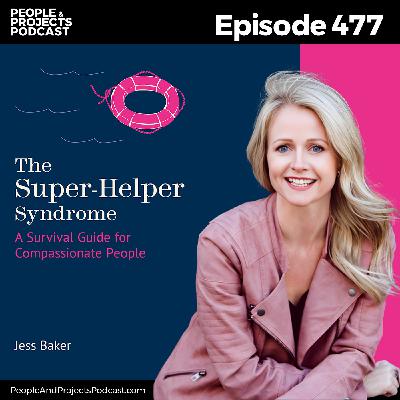
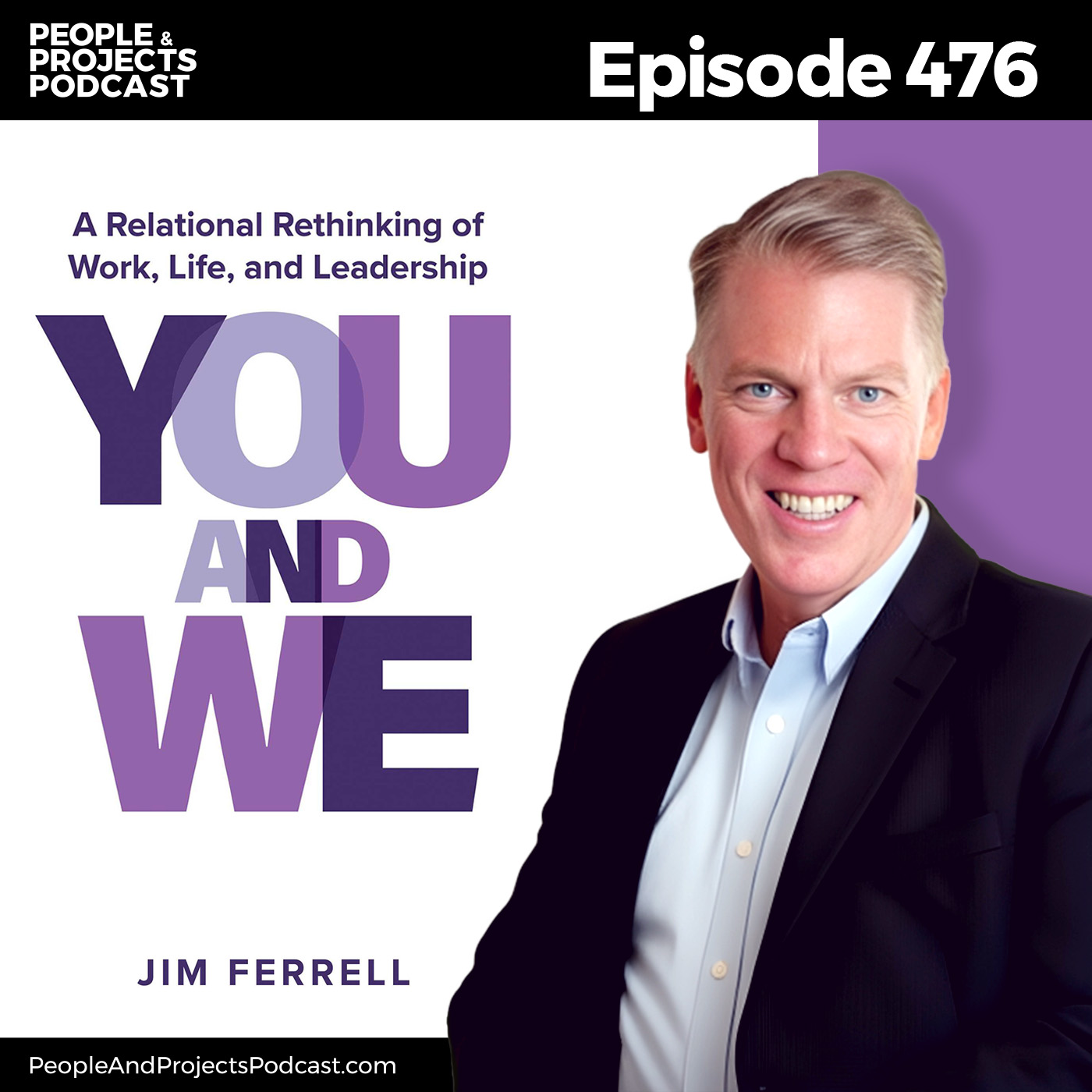
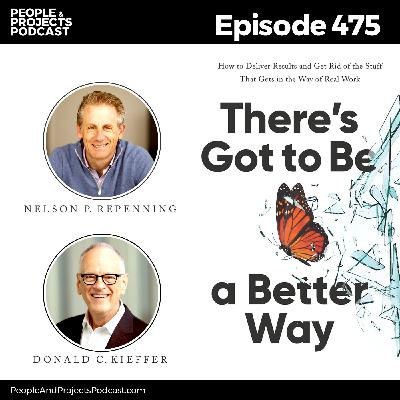
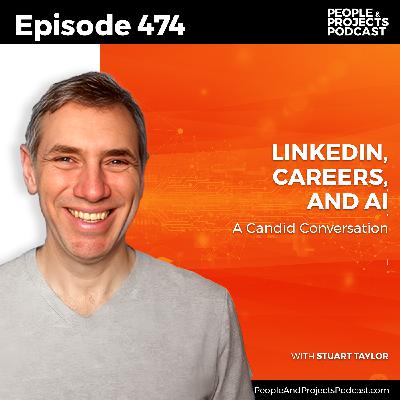
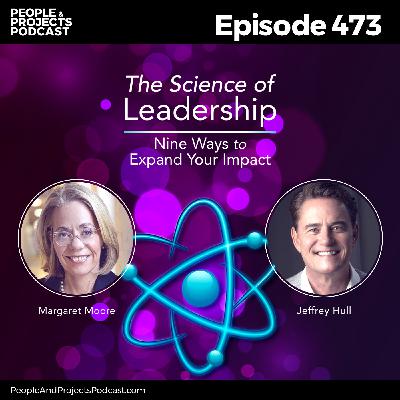
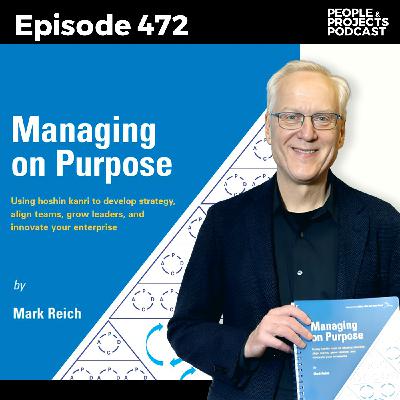

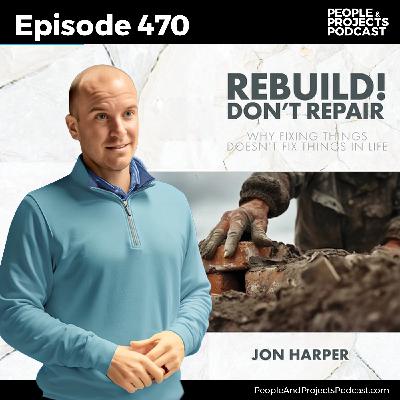
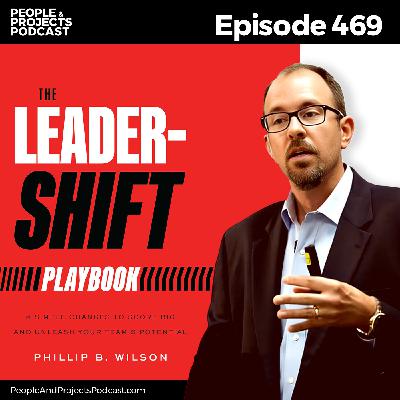
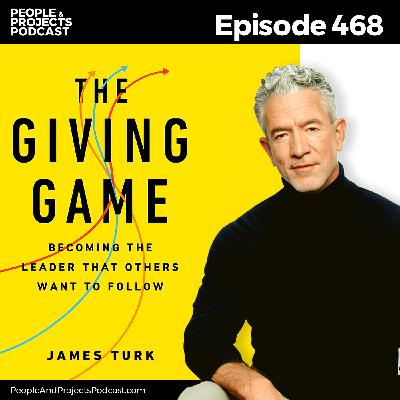
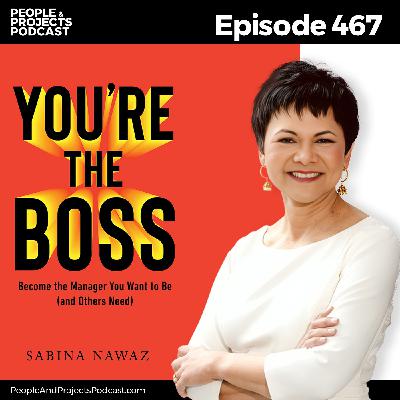
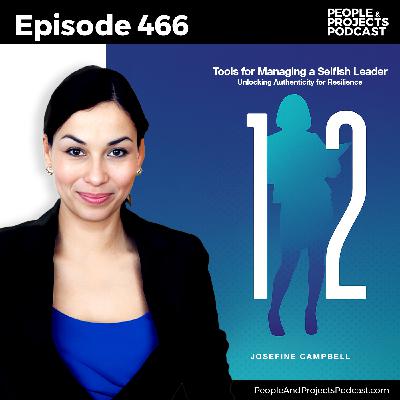
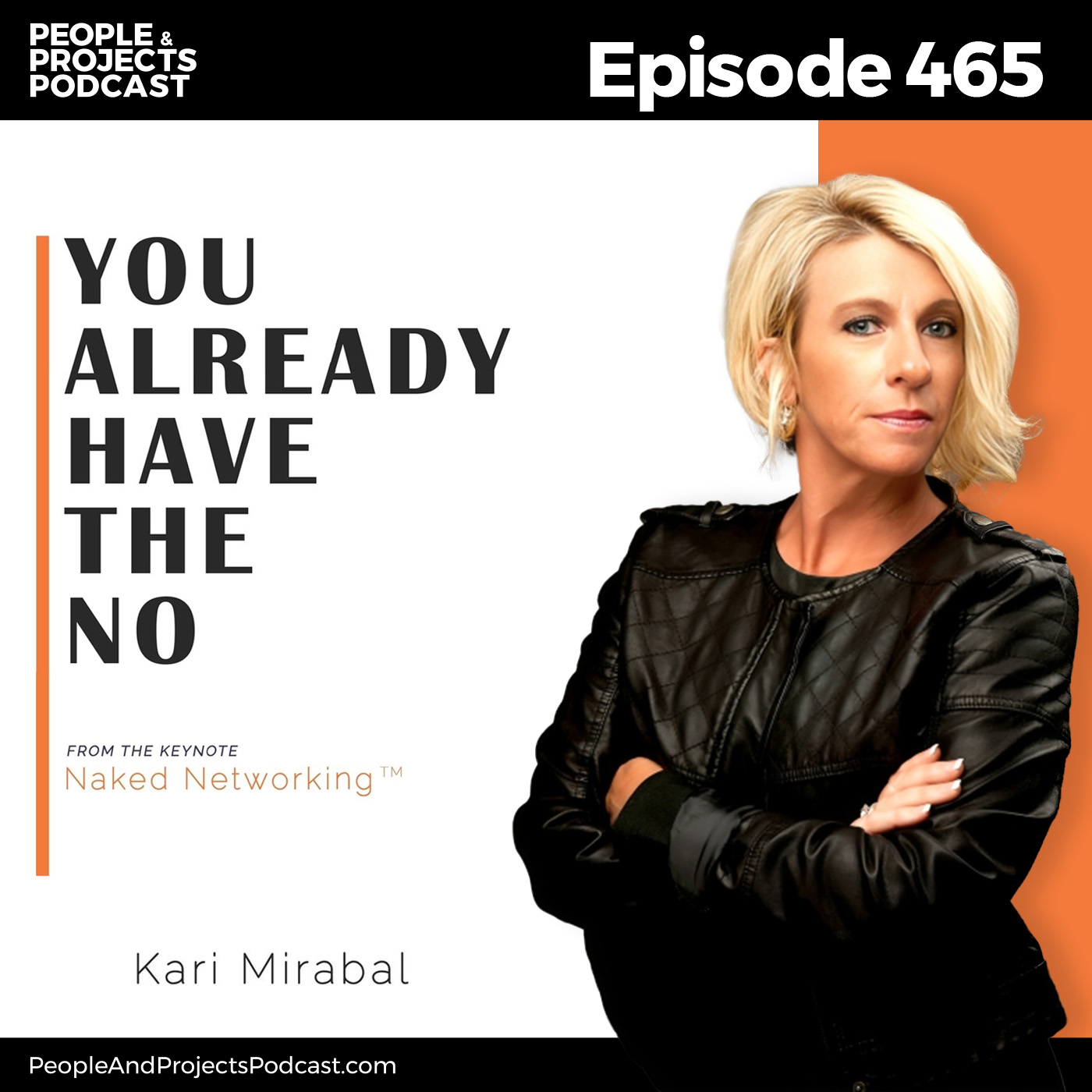
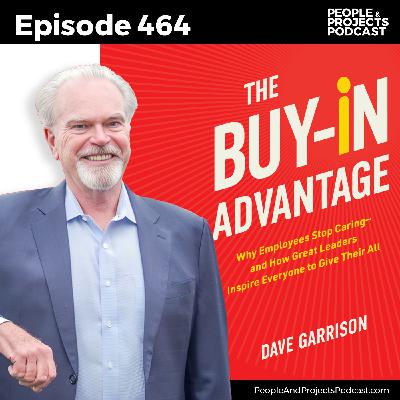
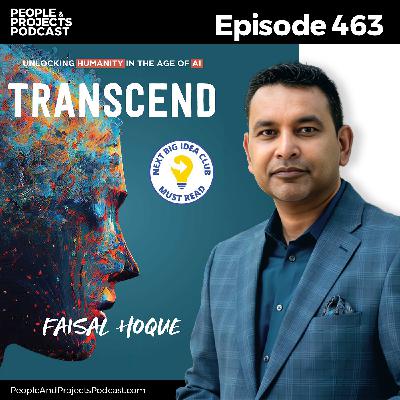
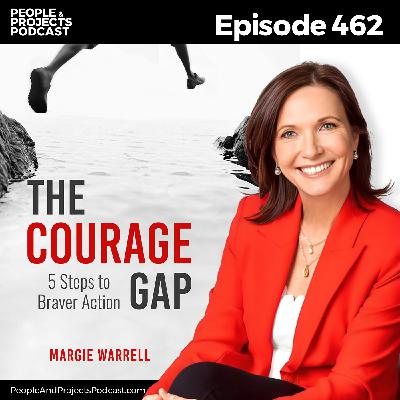
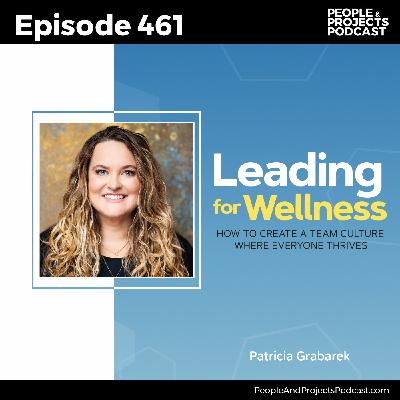
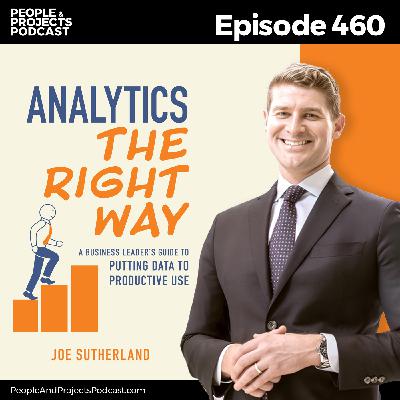
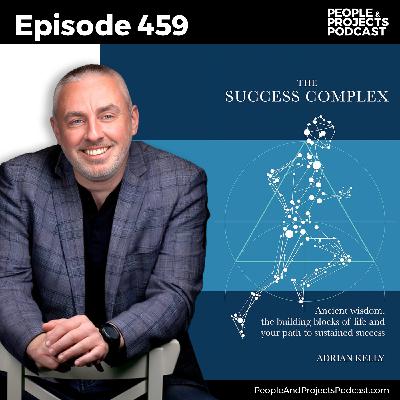
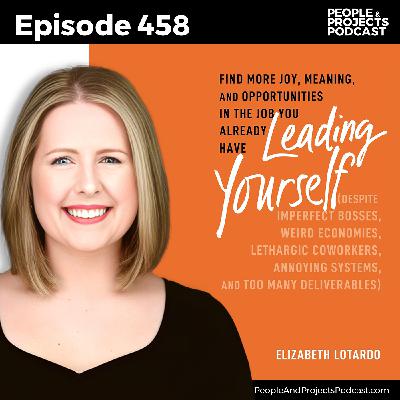



15 Best Project Management Software 2024 Shortlist · 1. Celoxis – Best for Comprehensive PMO Software · 2. Planview – Portfolio and Resource Management. More check at: https://www.celoxis.com/article/best-project-management-software
love this. I am looking to pursue a career in PM and this has given some great insights!
great thanks for this episode, appreciate variation on subjects you are dealing with each time.
Andy is conducting a great podcast. great reference for additional learning and insight.
When there is even an inkling that I made a mistake, the first thing I tried to do is take the emotions and defensivness out of it. When that works, I am the better for it. Conversely, when someone makes a mistake, again I try to take the emotions out of it and give them an opportunity to own the mistake. We then move on with a better appreciation for it and respect for one another. That said, if someone does not own up to a mistake, I start taking notes and writing letters. You be amazed of the response at that time. Bottom line, we are all one moment away from making a mistake. Don't let your reaction to your mistake be your mistake.
Like it very much. I once told my supervisor "don't be easily disappointed".